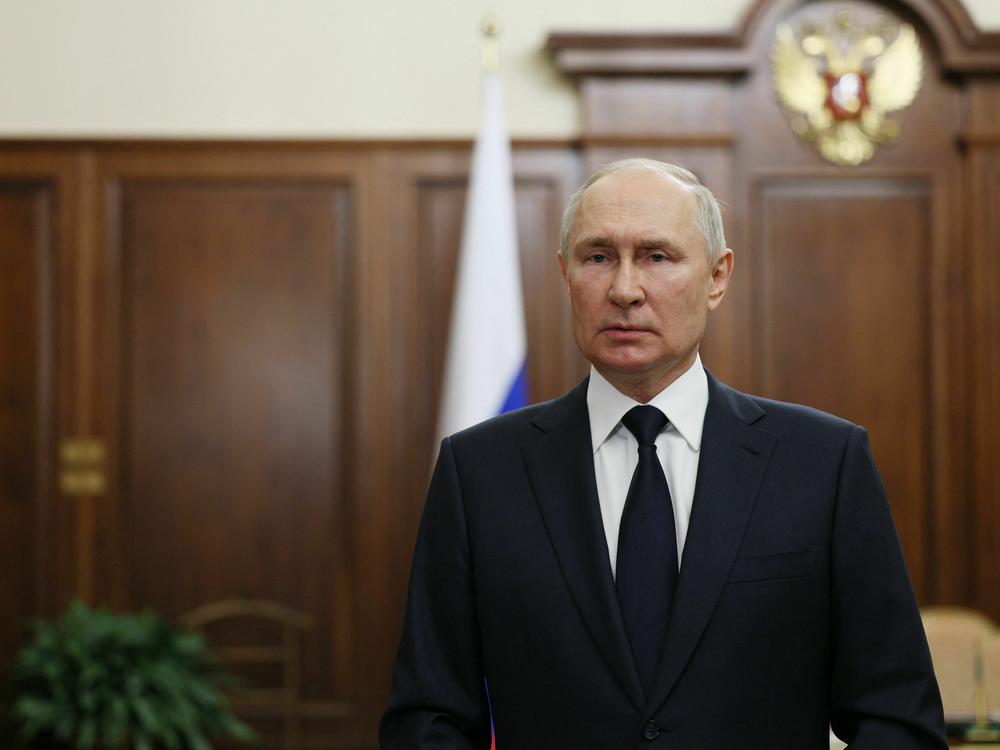Section Branding
Header Content
Putin insists Russia is united after the Wagner Group uprising, vows to uphold deal
Primary Content
In his first address since a group of rebellious mercenaries marched toward Moscow over the weekend, Russian President Vladimir Putin said that the country had united in opposition to the uprising.
In a brief five-minute speech, Putin seemed to reaffirm a deal he agreed on to end the conflict, which resulted in Wagner Group commander Yevgeny Prigozhin being exiled to Belarus.
Though Putin didn't reference Prigozhin by name, he angrily denounced the organizer of the uprising as a traitor.
Prigozhin, nicknamed "Putin's chef," runs the mercenary group that has been critical to some of Russia's battlefield successes in Ukraine and elsewhere. He was once a close confidant of the Russian president.
In his own speech earlier in the day, Prigozhin said Wagner forces marched on Moscow to protest the failures of Russian military leadership in Ukraine and push back against the planned dissolution of the Wagner Group.
Prigozhin said the Wagner Group did not attack any Russian soldiers "on the ground" but acknowledged that they fired back on military forces that had allegedly attacked Wagner fighters from the air.
Putin said some Russian pilots had died in the fighting. Prigozhin previously said 30 Wagner fighters had been killed.
Putin also reaffirmed other tenets of the deal to end the weekend uprising. He thanked the Wagner fighters who avoided bloodshed and said those who did not participate in the rebellion could sign contracts with the Russian military. Any mercenaries who chose not to join up could go home or follow Prigozhin to Belarus, Putin added.
Earlier in the day, Kremlin spokesperson Dmitri Peskov had described Putin's speech as one that would define the fate of Russia.
Copyright 2023 NPR. To see more, visit https://www.npr.org.

